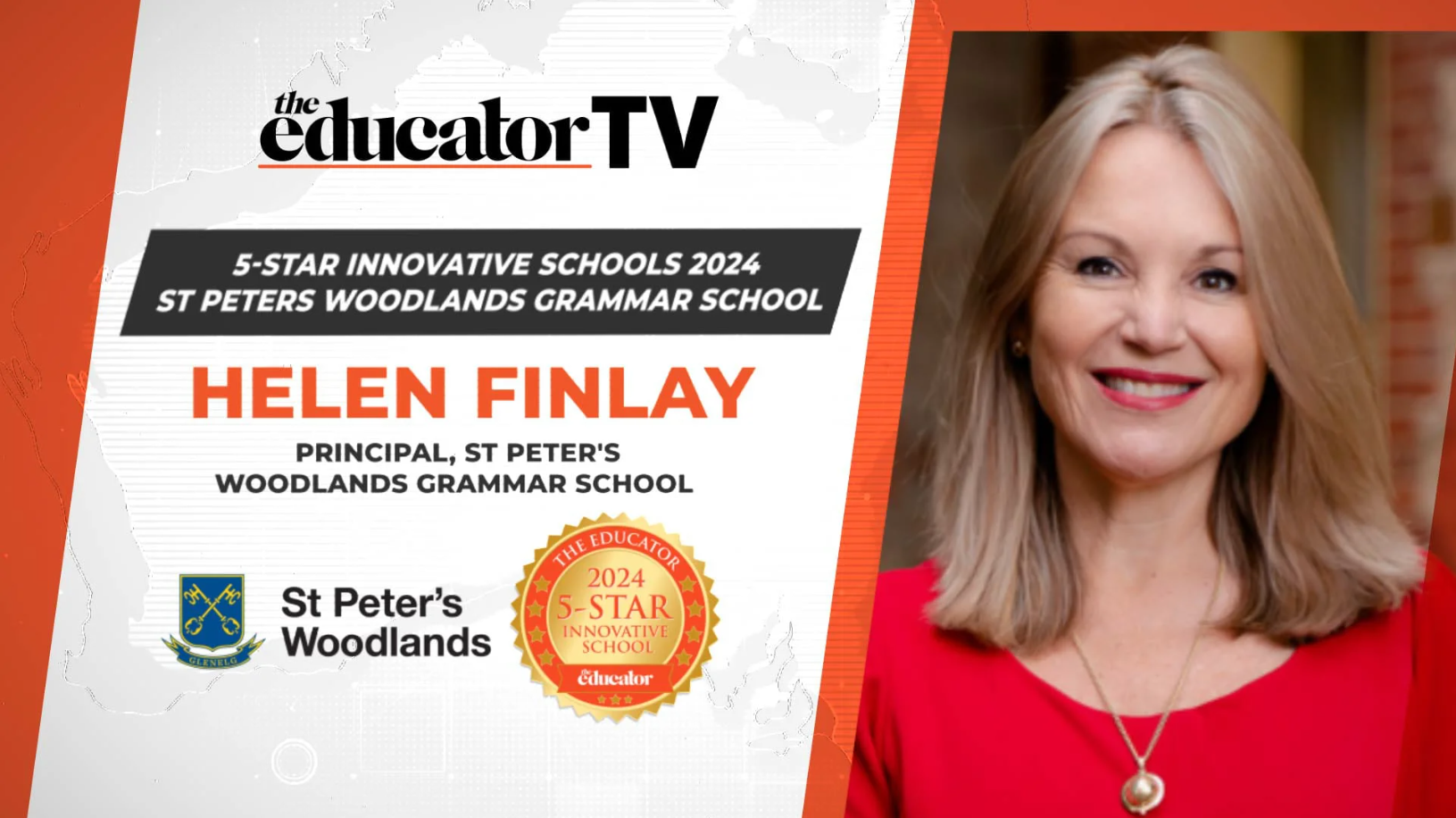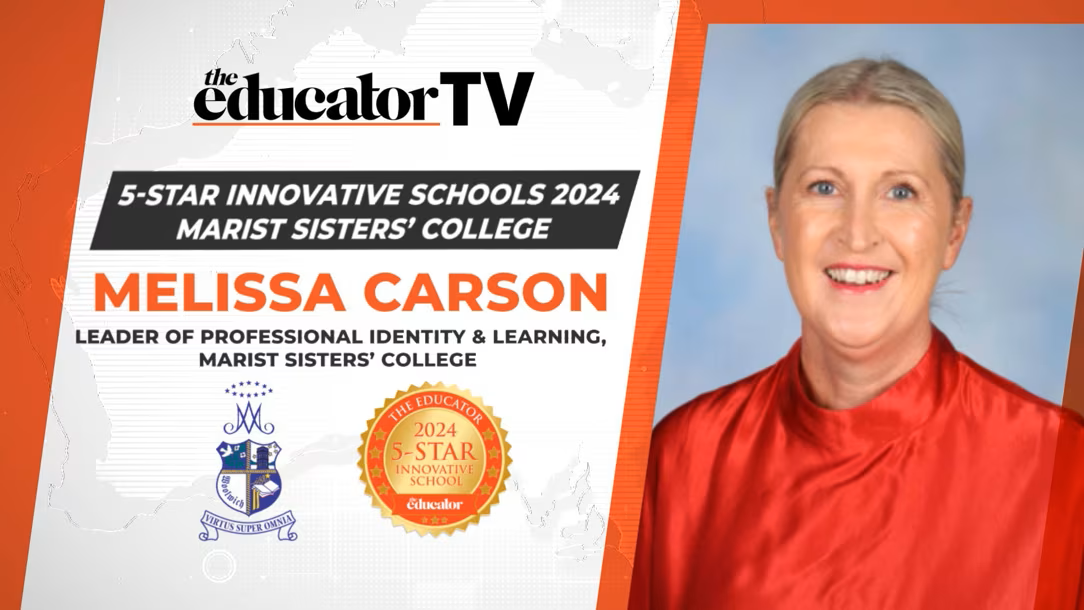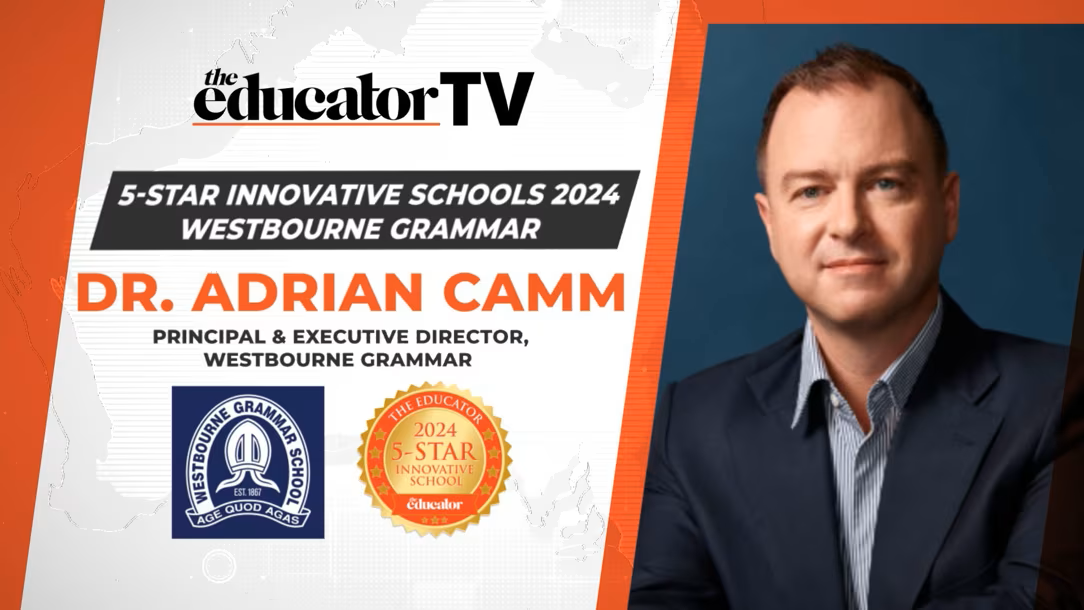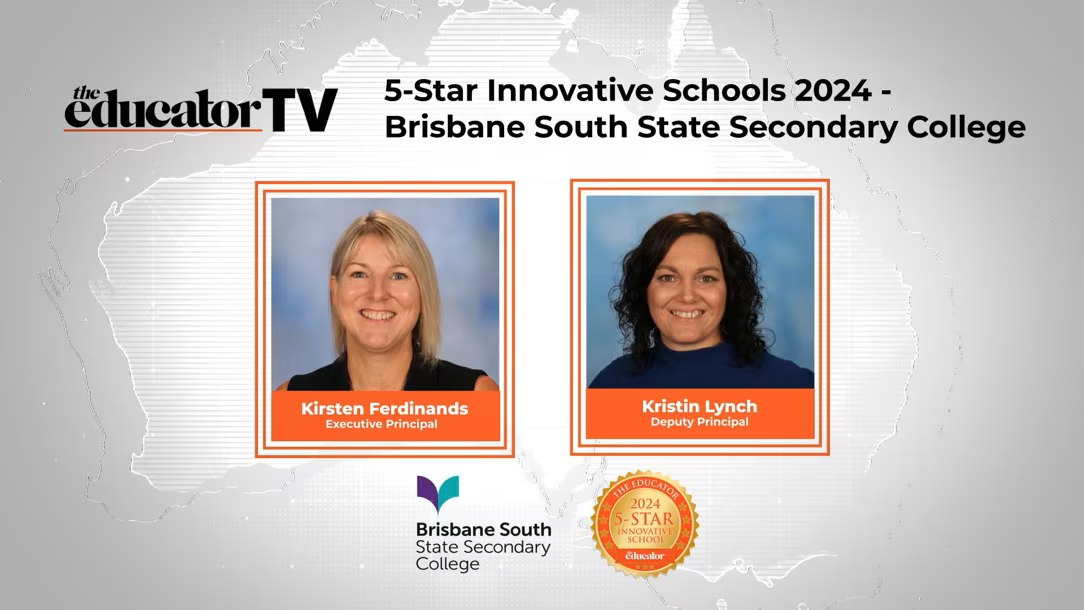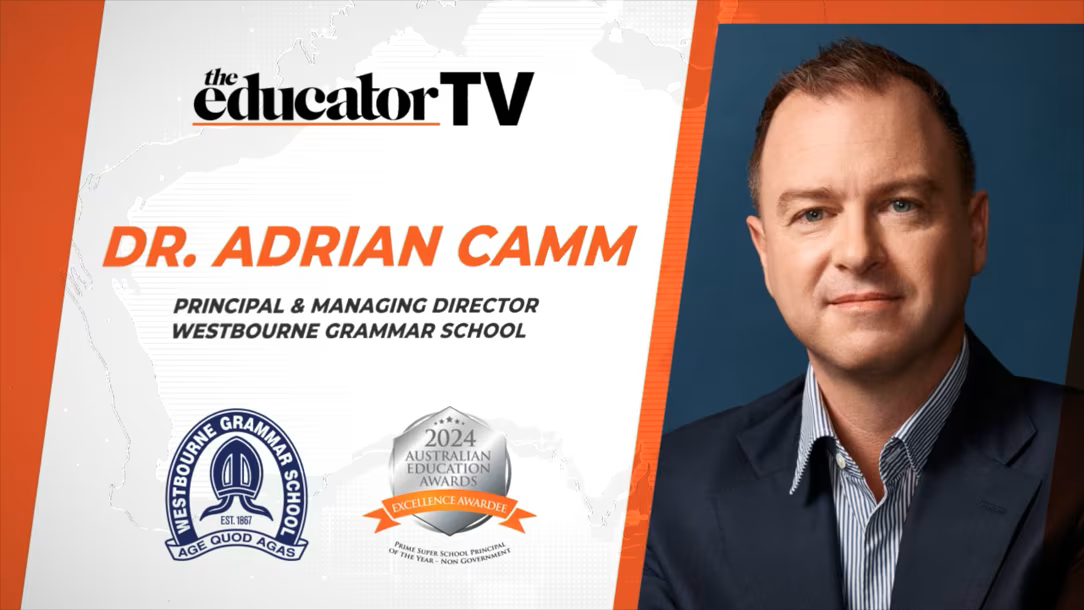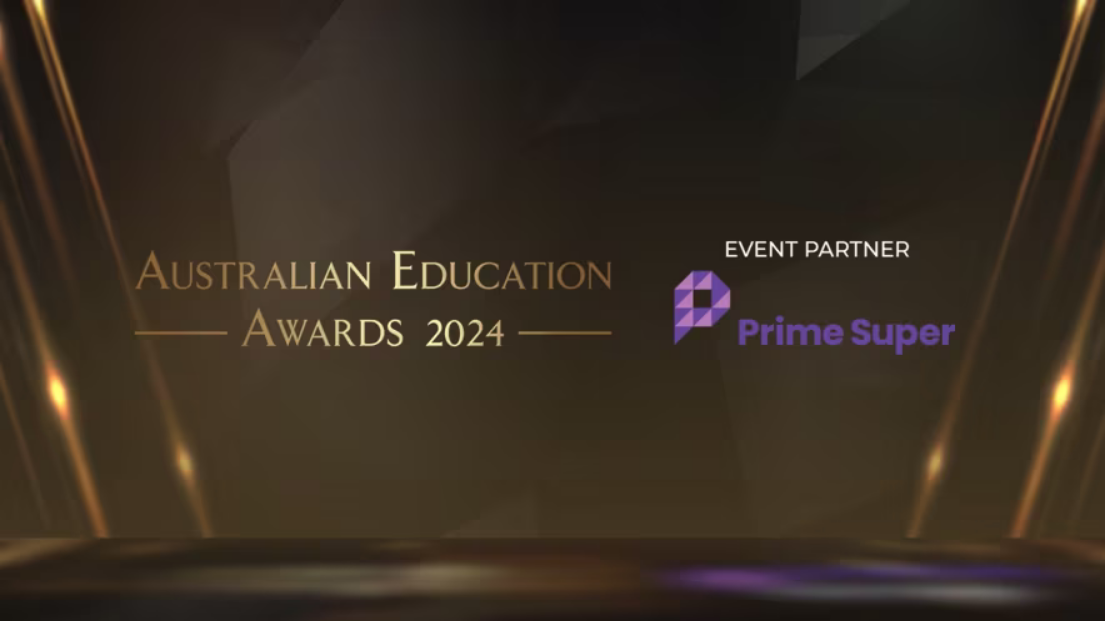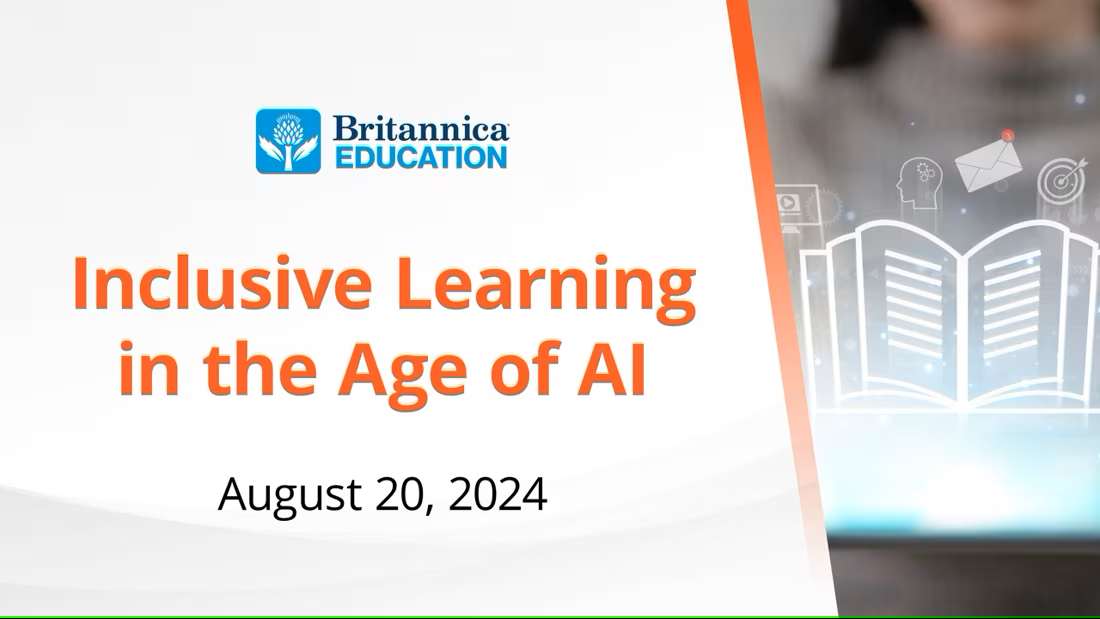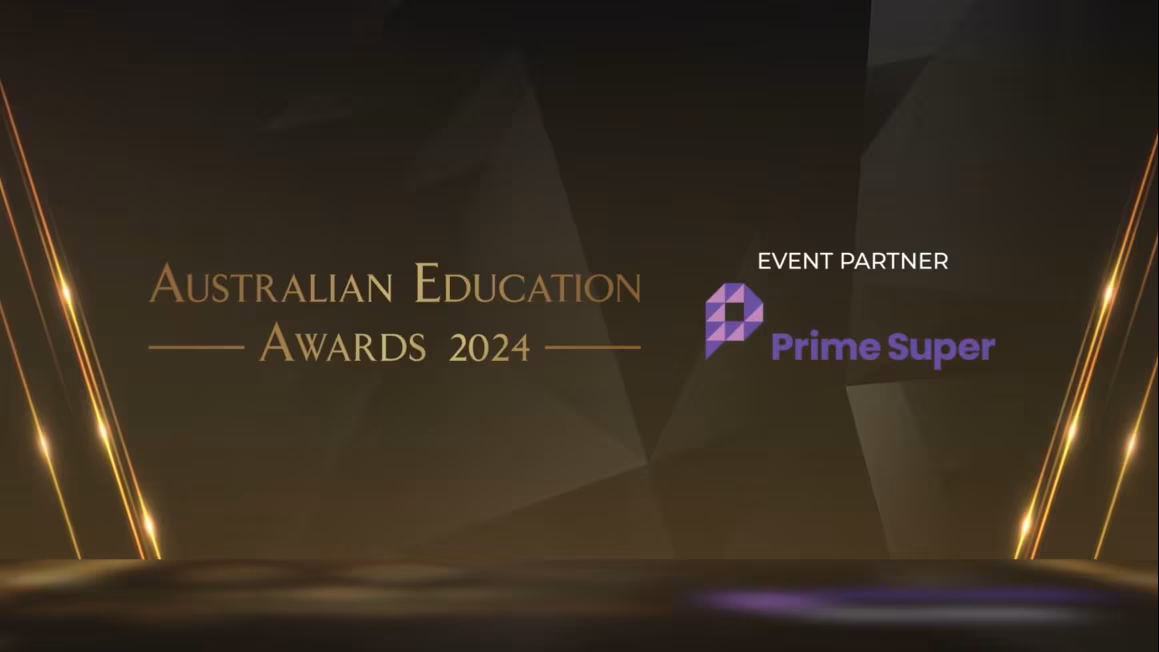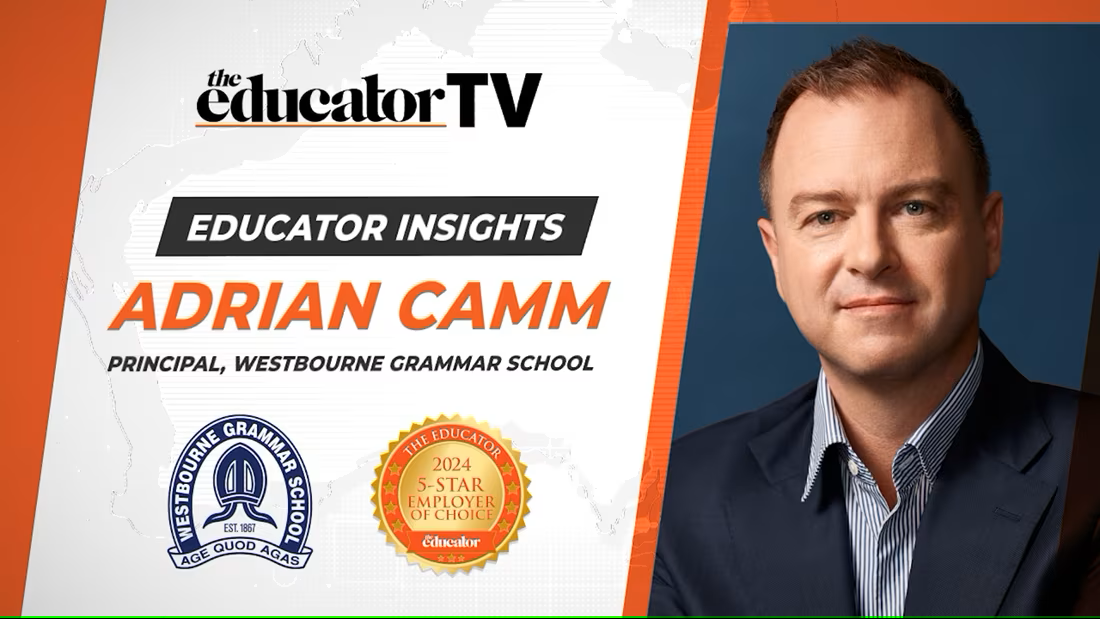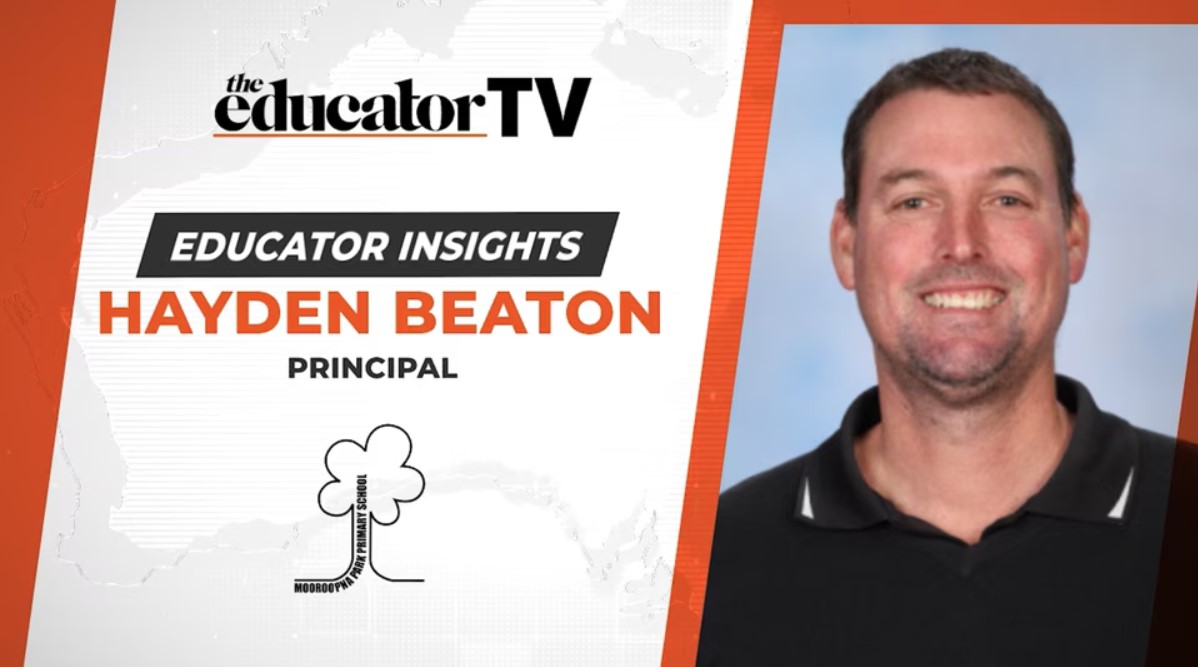How James Fallon High School became an exemplar of excellence in regional education
In this episode, join James Fallon High School principal Jenny Parrett, who provides an exciting glimpse into the school’s teaching and learning culture, strategies used to navigate disruption during Covid-19, and the outlook for regional education in Australia as we embark on a new school year.
To view full transcript, please click here
Brett: [00:00:16] Hello and thank you for joining us today. I'm Brett Henebery, the editor of the educator. And with me today is Jenni Parrett, who is the principal at James Fallon High School. We're also joined by Year 12 students Caitlyn Martin and Keira Gardiner, who are both prefects at the school. The Australian Education Awards in December. James Fallon was recognised as Regional School of the Year and also picked up Excellence Awards in the Education Perfect Government Secondary School of the Year category. Jenni, congratulations on the school for winning these big awards.
Jennifer: [00:00:47] Well, thank you. It's a great honor.
Brett: [00:00:50] Can you tell our viewers a bit about your school's teaching and learning culture and what you believe makes James Fallon High School such a great school?
Jennifer: [00:00:58] James Fallon High School is a community school, a school that works within a very dynamic and diverse school community. It is a rural school that honors the opportunity to educate the public and offers a range of different opportunities to do that. The vision of the school is around making sure that we cater to all of our community and its learning needs, and our motto is together we succeed. So it's hugely collaborative, but there's lots of points of difference around the learning culture, so we have different opportunities for students to learn. So the students that you have here with us today are awesome leaders in our school and they are engaged in the HSC. But you can't study the HSC by a big-picture learning credential or in the diverse learning faculty or there is support for you if you are a student who doesn't need to fit into that traditional mold. There's opportunities in in learning designs. You're personalizing learning for all sorts of students, and it gives us the opportunity, therefore, to say that students are more than a number, that they are their own people and they have to be themselves. Everyone in our place is unique and different, and we honor that every day.
Brett: [00:02:10] Wonderful culture got there Jenni. I'd like to move on just to Keira and Caitlyn quickly and ask you, like, what do you think are the best things about studying at James Fallon High School? And do you agree with all of that?
Keira/Caitlyn: [00:02:21] I agree one hundred percent with Ms. Parrett. There's so many different ways of studying here. The people that you make, no one's the same with, especially we've got big picture. They're doing a completely different thing, but what they're doing is obviously working. And there's just, yeah, there's so many different ways of doing things. There's just don't get bored. Yeah, it's no like one particular way to study here. It's like multiple ways that fit everyone's needs.
Brett: [00:02:49] Never bored. Always something interesting going on.
Keira/Caitlyn: [00:02:53] Yeah.
Brett: [00:02:55] Fantastic. Look, Jenni, drawing on your experience as a principal over the last 12 months, what have been the biggest challenges the school is faced? And equally importantly, what strategies have you put in place to overcome these?
Jennifer: [00:03:08] Well, thanks for the question. It's a really unique space to live in Albury-Wodonga, where you have a Murray River that spans a twin town and having two legislative dynamics in those. Those 12 months, two years has been a really, really interesting space. So every time there was a legislative change in Victoria, we would feel it every time there was a legislative change in use as well, but obviously feel that too. So part of the challenge was navigating that cross-border, and sometimes we would have staff or students that couldn't travel across and vice versa. So that was really interesting. But I guess the unique part of being in Albury-Wodonga is the opportunity to see what we can do for ourselves. So overcoming those challenges was making sure contextually we do what was right for our students and our kids. So one of the things that we really wanted to do, regardless of what the what the outcome around the HSC and the delays and the delays in the examinations was to make sure that every student who wanted to go to university got an early entry scheme. So out of 78 students last year, fifty five students had had their university destination because they wanted it before they actually picked up a pen to do their exams. So we're really proud of stuff like that that we think that there are ways around all of that. I guess the other challenges are that many, many of our families have faced enormous adversity. But. Our families are incredibly resilient, and they they do extremely well and they link with us when they need to. And I think that that's that's really awesome. I think the other thing that we've done is kept going with our initiatives in spite of the COVID delays. So it's been a slow burn. We've introduced a number of key improvements that were designed to be here at the end of 2019, and they tend to have happened now. But I think that that's that's part of it. So, you know, yes, you can say that COVID has delayed things, but it hasn't stopped things and things are different. It'd be really nice to put on a musical this year. It might be really nice to to do some of that performance element that our school is so strong at and maybe have a game of rugby league or something around that, but it is something that we will continue to just keep working towards. So I think that that's really important
Brett: [00:05:27] On that performing arts point, Caitlyn and Keira mentioning to me earlier how fond they are of dancing and singing and the performing arts in general. So I imagine they're looking forward to that too.
Jennifer: [00:05:38] Yes.
Brett: [00:05:39] Caitlyn, Keira, I just want to ask you a question about how you feel the school is preparing you for your post school plans and what others post school plans.
Keira/Caitlyn: [00:05:50] Well, I think that our school prepares us really well, because all of the year advisors or career advisers, they always have a way to help you do what you want to do. So personally, I want to study journalism. So a lot of there's a lot of help from the English faculty and the career advisers to try and get me to where I want to go. What about you? Myself as well. I want to go to uni as well, and I know that there's already plans being put in place for our group for us going to uni. There's already days being planned where we'll get to experience different universities and our year, our career advisor, Mr. Tyler. He just works constantly, helping us to do things that we want to do. So yeah, it's really good. Yeah.
Brett: [00:06:39] It sounds like you've got some great support there, that's wonderful to hear. Jenni, I just want to ask in what ways will the school be building on its success in twenty twenty two? Because I mean, through the pandemic, the school has been doing great. I mean, despite the challenges, it's been doing fantastic. So what kind of year do you think this will be for the school and for regional education?
Jennifer: [00:07:02] So we're in a privileged position of having new members in our executive team, so that will give us a lens on and they have come from schools who have been award winners before. So we have Amanda Cook from Plumpton High School, who won Secondary School of the Year in a previous year. And we have Jason Hill from KeriKeri High School, who has also won awards for progressive innovation in curriculum. So it's great to have that fresh lens to say, Well, what are our, you know, are there any gaps? What do we need to do to fill them? We know that we, you know, move forward in that. So that's been terrific. We want to make sure that our architecture is complete. So last yesterday, I signed off a space for our Clontarf Academy, which has been launched this this year to support engagement of our Aboriginal young men. We're looking to ensure that we have architecture for our wellbeing space by the end of twenty twenty two so that we have the opportunity for families to come into the school without having to come through the school all the time. And of course, we really want to make sure our students are. We've had a school development review. We initiated that review at the end of last year and 50 students gave their voice to that, and we want to see some of the ideas that they've put through. So one of the things SRC is working on is and consistent use around mobile phones and looking at some new uniform, which is which is terrific, so we won't stand still. There's no question about that. I think that the school can only move forward. I think we've got the right mix of start and awesome students, and I think that that will just keep moving forward. And we still feel that as a comprehensive public school, we are here as a right to education rather than a privilege and to make sure that every student has that right to learn the way that they want it. So a different young person can walk through the gate and we meet their needs. I think that's how it has to work.
Brett: [00:08:58] Absolutely. It really does sound like a staff and students are in fantastic hands, they're at the school. You're doing some wonderful things. Look, it's great to hear that staff and students are in good hands, and I wanted to thank you again for joining us today and walking us through everything or the great things the school's been doing.
Jennifer: [00:09:17] Oh, thank you. I really want to thank the young people who volunteered to do this, the natural, the natural interviewees that they are. And I just want to say that this when I came to this school, I felt like I'd come home, and I hope that everyone feels the same way when they walk in schools, really different places in large places to be in. But I think this place has a wonderful culture and we just want to keep it going.
Brett: [00:09:43] Absolutely. Thanks so much, Jenni and Caitlyn and Kiera, thanks so much for joining us today.
Keira/Caitlyn: [00:09:48] Thank you.
Jennifer: [00:09:49] Thank you.
Brett: [00:09:50] All the best for your future.



